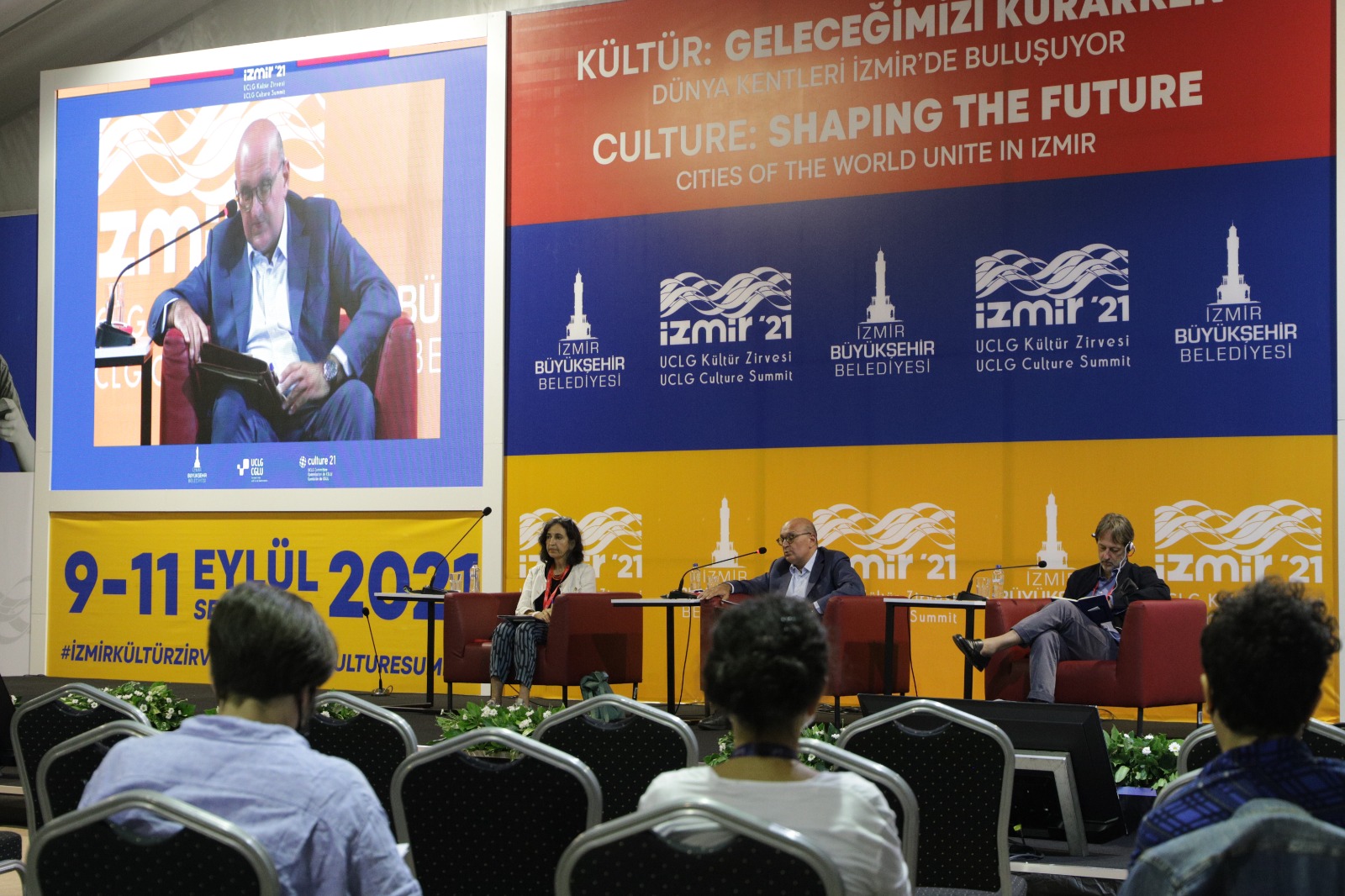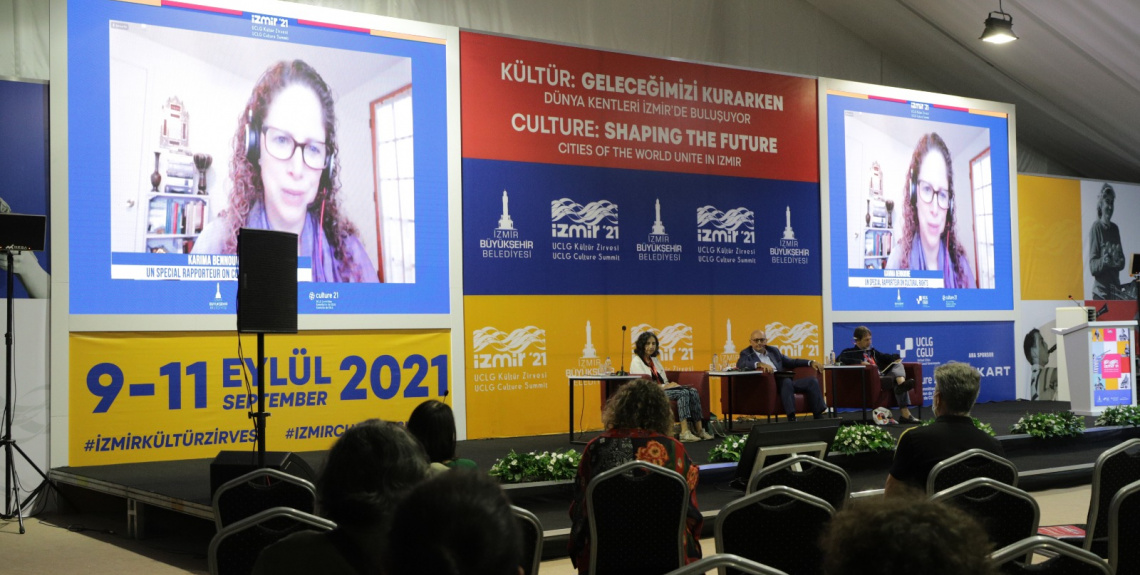The last UCLG Culture Summit held in Izmir from 9 to 11 September 2021 brought together local governments and key partners in the culture sector and human rights practice to address future steps for the cultural rights agenda within UCLG and beyond. These efforts will aim at highlighting the role of “Culture in shaping the future of humanity” and actively contribute to the UCLG Pact for the Future process.
The role of culture in sustainable development has been addressed by UCLG for a long time now, particularly through the work of its Culture Committee. This process has allowed local governments and UCLG partners (from civil society to cultural actors and international organizations) to place a particular emphasis on the human rights approach to culture.
Advancing a cultural rights agenda has allowed UCLG members to reflect on key local priorities, such as recognizing, celebrating and fostering diversity, identity and participation.
The 2020 Rome Charter was a key contribution to the municipal movement agenda on sustainable development and human rights. It was developed by a wide coalition of local governments and key partners within the Culture Committee as a response to the COVID-19 crisis, hoping to place culture high in the recovery agenda. The Charter sets a common roadmap by and for local governments to address policies on cultural rights through:
- Discovering cultural roots, so that we can own heritage, identity and place in the city
- Creating cultural activities, so that they can be part of and enrich the life of the city
- Sharing cultures and creativity, so that social and democratic life is enriched
- Enjoying cultural resources, so that they can be inspired, educated and refreshed
- Protecting cultural resources so that all can benefit from them now and in future
The latest UCLG Culture Summit held in Izmir was a good occasion for key local governments and international partners supporting the Rome Charter to come together and propose a common roadmap for the future. A Plenary Session was dedicated to explore how the Rome Charter could help operationalize the right to participate in cultural life.

The session counted with the participation of several local government and cultural actors committed to develop the Rome Charter through local action and global cooperation.
Luca Trifone, Diplomatic Advisor to the Mayor of Rome, represented the city promoting the Charter process back in 2020, arguing how “the Rome Charter was a milestone which enshrined and widened the UN declaration on human rights”. The former Deputy Mayor of Rome, Luca Bergamo, argued how one of the main aims of the Charter was to support local governments operationalize policies on cultural rights as a meaningful way to “empower city residents through culture and by being active part of local cultural life”.
« Barcelona is carrying out its cultural policies inspired by the rights-based approach. On one hand, we build on intercultural and feminist perspectives to trigger the changes we want to attain. On the other hand, we make efforts to decentralize our own cultural activities, following a metropolitan approach to governance »
Jordi Martí, Councillor for Culture of Barcelona
« The importance of the rights-based approach is critical. Decisions that we make now will determine the future of the XXIst century. In order to drive forward the cultural rights agenda we need effective policies and resources, not just rhetoric. We also need government accountability, whether legal or political »
Karima Bennoune, UN Special Rapporteur on Cultural Rights
« The Rome Charter was born in the context of local government responses to the pandemic. However, it was also connected to long-term discussions regarding the relationship between culture and sustainable development, as well as articulation between local realities and global agenda. Therefore, it will play a critical role in articulating this discussion and our role within it »
Vannesa Bohórquez, Councillor for Culture of Mexico City
The significant outcomes of this debate (best reflected in the Izmir declaration) are expected to connect with the wider UCLG agenda on sustainable development and human rights. More specifically, the ongoing follow-up process of the Global Charter-Agenda for Human Rights in the City will open up specific opportunities to better connect these synergetic discussions and thematic agendas by local and regional governments across the world.
Stay tuned for future updates and activities by the UCLG Culture Committee here.


